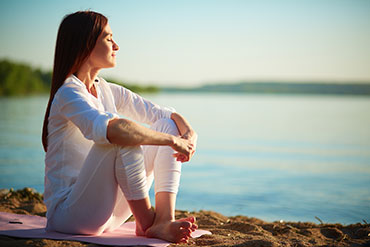 The outbreak of coronavirus disease (COVID-19) has been stressful for everyone. Fear and anxiety about a viral disease can be overwhelming and cause strong emotions. It’s important to be able to coped with the stress to avoid developing undue anxiety.
The outbreak of coronavirus disease (COVID-19) has been stressful for everyone. Fear and anxiety about a viral disease can be overwhelming and cause strong emotions. It’s important to be able to coped with the stress to avoid developing undue anxiety.
Sharing the facts about COVID-19 and understanding the actual risk to yourself and people you care about can make an outbreak less stressful. When you share accurate information about COVID-19 you can help make people feel less stressed and allow you to connect with them. However, if you suffer from anxiety, you may want to limit your exposure to news coverage of the event, including social media.
Everyone reacts differently to stressful situations. How you respond to the outbreak can depend on your background, your support system and the community you live in. Another critical factor is whether you already suffer from anxiety.
- People who may respond more strongly to the stress of a crisis include
- Those suffering from an anxiety disorder or depression
- Older people and people with chronic diseases who are at higher risk for COVID-19
- Children and teens
- People who are helping with the response to COVID-19, such as doctors and other health care providers, and first responders
- People who have mental health conditions including problems with substance use
Signs of Stress
We become so distracted during a crisis like the current one, that we can lose track of the signs of stress. It’s important to watch out for these so you can mitigate them. Stress during an infectious disease outbreak can include
- Fear and worry about your own health and the health of your loved ones
- Changes in sleep or eating patterns
- Difficulty sleeping or concentrating
- Worsening of chronic health problems
- Increased use of alcohol, tobacco, or other drugs
People with preexisting mental health conditions, especially anxiety should continue with their treatment and be aware of new or worsening symptoms. Taking care of yourself, your friends, and your family can help you cope with stress. Helping others cope with their stress can also make your community stronger.
Things you can do to support yourself
- Take breaks from watching, reading, or listening to news stories, including social media. Hearing about the pandemic repeatedly can be upsetting.
- Take care of your body. Take deep breaths, stretch, or meditate. Try to eat healthy, well-balanced meals, exercise regularly, get plenty of sleep, and avoid alcohol and drugs.
- If you can’t go out to exercise, take up yoga or tai chi. There are plenty on videos to watch online and on television.
- Make time to unwind. Try to do some other activities you enjoy.
- Connect with others. Talk with people you trust about your concerns and how you are feeling.
- Call your therapist if stress gets in the way of your daily activities for several days in a row.
Reduce stress in yourself and others
Try to keep up with regular routines. If you’re stuck at home, create a schedule for learning activities and relaxing or fun activities. Be a role model for yourself. Take breaks, get plenty of sleep, exercise, and eat well. Connect with your friends and family members. I am now offering California online therapy and California online counseling in addition to working in my office.
Allow time for you and your family to recover from responding to the pandemic. Create a menu of personal self-care activities that you enjoy, and remember; we’re all in this together and we will get through this.
Randi Fredricks, Ph.D.

References
Neria Y, Nandi A, Galea S. Post-traumatic stress disorder following disasters: a systematic review. Psychol Med. 2008;38(4):467–480.
Ahern J, Galea S, Resnick H, Kilpatrick D, Bucuvalas M, Gold J, Vlahov D. Television images and psychological symptoms after the September 11 terrorist attacks. Psychiatry. 2002;65:289–300.
Basoglu M, Kilic C, Salcioglu E, Livanou M. Prevalence of posttraumatic stress disorder and comorbid depression in earthquake survivors in Turkey: an epidemiological study. Journal of Traumatic Stress. 2004;17:133–141.
Bradburn IS. After the earth shook: children’s stress symptoms 6–8 months after a disaster. Advances in Behaviour Research and Therapy. 1991;13:173–179.
Breslau N, Davis GC, Andreski P, Peterson E. Traumatic events and posttraumatic stress disorder in an urban population of young adults. Archives of General Psychiatry. 1991;48:216–222.
Breslau N, Kessler RC, Chilcoat HD, Schultz LR, Davis GC, Andreski P. Trauma and posttraumatic stress disorder in the community: the 1996 Detroit Area Survey of Trauma. Archives of General Psychiatry. 1998;55:626–632.
Brewin CR, Andrews B, Valentine JD. Meta-analysis of risk factors for posttraumatic stress disorder in trauma-exposed adults. Journal of Consulting and Clinical Psychology. 2000;68:748–766.

